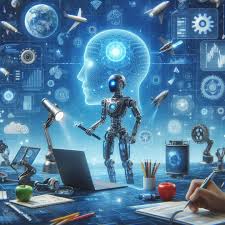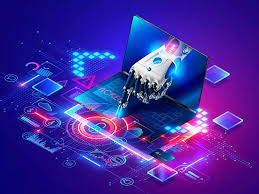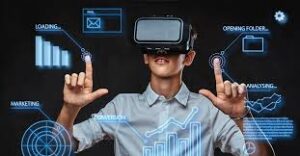
“Discover how AI is reshaping the job landscape and unlocking exciting new opportunities by 2030.”

In recent years, the conversation around artificial intelligence (AI) has largely focused on one thing: fear. Headlines warning of mass unemployment, robots replacing humans, and the end of certain professions have dominated the narrative. While it’s true that AI is reshaping the workforce, the full picture is far more nuanced — and, in many ways, far more hopeful.
AI is transforming the job landscape in powerful and often positive ways, creating new opportunities rather than simply replacing human workers. While automation may take over repetitive or routine tasks, it’s also opening the door to entirely new roles and industries — from AI ethics and prompt engineering to data curation and human-AI collaboration. Rather than eliminating jobs, AI is increasingly being used to augment human capabilities, allowing people to focus on more creative, strategic, and meaningful work.
Professionals in fields like healthcare, marketing, education, and finance are already seeing how AI can enhance efficiency and decision-making without removing the human element. As with past technological revolutions, this shift is prompting a renewed focus on upskilling and lifelong learning, especially in areas where human judgment, empathy, and creativity remain irreplaceable. The future of work with AI is not about competition — it’s about collaboration, innovation, and unlocking potential in ways we’re just beginning to explore.
Let’s take a step back and look at the broader transformation underway and, more importantly, how AI is not just replacing jobs but also creating new ones, enhancing human potential, and reshaping industries for the better.
Chatbot
The Evolution of Work: Every Disruption Brings New Roles

Throughout history, technological advances have always disrupted labor markets — from the steam engine to the internet. In every instance, while some roles faded, many others were born. The same pattern is emerging with AI.
According to a 2024 report by the World Economic Forum, while AI and automation are expected to displace around 85 million jobs by 2025, they’re also projected to create 97 million new ones. These roles span everything from AI ethics and machine learning operations to creative industries, mental health support, and green technologies.
Automation vs. Augmentation: A Critical Difference

One of the most misunderstood aspects of AI is the idea that it’s here to “replace” people. In reality, a growing portion of AI tools are designed to augment human capabilities, not eliminate them. Think of AI as a smart assistant that helps you work faster, make better decisions, or eliminate repetitive tasks.
- In healthcare, AI can analyze X-rays or medical data quickly, allowing doctors to spend more time with patients.
- In marketing, AI tools generate campaign ideas, but humans still craft messaging, strategy, and emotional tone.
- In finance, AI handles real-time analytics, while advisors provide personalized guidance and trust.
In many industries, AI takes over the routine, freeing up professionals to focus on the meaningful.
The Rise of New Career Paths

As AI technology evolves, new job categories are emerging — some of which didn’t exist a decade ago:
- AI Trainers: People who teach AI systems using data, feedback, and real-world context.
- Prompt Engineers: Experts who craft prompts to get optimal results from generative AI systems.
- Ethics Officers: Professionals ensuring AI systems are used responsibly and without bias.
- Data Curators & Labelers: Essential roles for maintaining clean, accurate training data.
- Human-AI Collaboration Specialists: New roles focused on improving synergy between tech and teams.
Upskilling and Lifelong Learning: The Key to Staying Ahead

So how can professionals stay relevant in this AI-transformed world?
The answer lies in upskilling, reskilling, and embracing continuous learning. Soft skills like empathy, creativity, critical thinking, and leadership are more valuable than ever because they’re exactly what AI lacks.
At the same time, learning to work with AI (even at a basic level) can be a huge career advantage. Platforms like Coursera, edX, and LinkedIn Learning offer accessible courses in AI literacy, data fluency, and automation tools — no coding background is required.
A Human-Centric Future with AI

Perhaps the most exciting opportunity AI presents isn’t just about new jobs — it’s about redefining the way we work and live.
Imagine a future where:
- Employees have more time for meaningful work and creative thinking.
- Workflows are streamlined, leading to better work-life balance.
- AI handles tedious or dangerous tasks, improving safety and well-being.
- Innovation becomes more democratic, with tools available to all, not just tech experts.
AI doesn’t need to be the villain in the future-of-work story. It might be the sidekick we didn’t know we needed.
Final Thoughts

Change can be uncomfortable — even scary. But history shows that new potential, industries, and careers come with every wave of innovation.
AI is not here to take over the world or eliminate the human workforce. It’s here to elevate our work, spark innovation, and open doors we haven’t yet imagined.
The future of work isn’t about man versus machine. It’s about man and machine, working together — and that’s something to be excited about.






